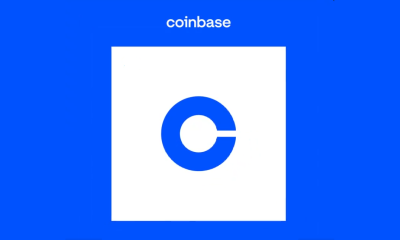Exchange Announcements
US Authorities Press Ahead with Probes and Enforcement Actions against Exchanges
Securities.io is committed to rigorous editorial standards. We may receive compensation when you click on links to products we review. Please view our affiliate disclosure. Trading involves risk which may result in the loss of capital.

In the wake of FTX exchange's collapse, authorities around the world have paid closer attention to the digital assets space, with a keen focus on the conduct of companies in the niche. The exchange co-founded by Sam Bankman-Fried filed for bankruptcy last November after failing to raise enough assets to fulfill customer requests. This incident inevitably drew regulatory scrutiny on other similar trading platforms as regulators sought to stamp out dodgy crypto dealings.
In recent months, federal agencies and government departments with oversight of the sector in the US have intensified their pursuit of centralized exchanges, market intermediaries, and other companies. Regulatory bodies like the Securities and Exchange Commission (SEC) and the Commodity Futures Trading Commission (CFTC) have on their end taken action against major players like, Coinbase, Kraken and Gemini citing various misdeeds. This week, Binance became the latest target of the US Department of Justice over alleged non-compliance to sanction laws. Here are details and more on other exchanges wading through legal issues.
Binance investigated for potential violation of sanctions related to Ukraine conflict
Bloomberg reported on Friday that the Department of Justice’s national security division was investigating Binance and some of its executives, citing persons close to the investigation. The probe into the officials seeks to establish whether the exchange's platform was used by Russians to facilitate the transfer of funds illegally. The CZ-led exchange denied any case of non-compliance to US and international financial sanctions it was aware of, adding that it has a Know-your-customer (KYC) protocol in place.
The unnamed sources also noted that the Department of Justice is unlikely to resort to a settlement with the crypto exchange if the investigation ends up as formal charges. The US Department of the Treasury’s Office of Foreign Assets Control last Monday announced a settlement agreement with Poloniex based on potential civil liability for apparent violations of sanctions against Crimea, Cuba, Iran, Sudan, and Syria.
Binance is the subject of other regulatory and criminal inquiries related to its conduct. This week, a May 4 Reuters report indicated that the exchange allowed accounts with links to terrorist groups, including the Islamic State, to access the platform. In a May 5 blog, Binance responded to the claims accusing Reuters of “deliberately leaving out critical facts” to depict the exchange in a bad light.
“The bottom line is that we are not aware of any exchange – or other financial institution for that matter – that does more today to keep bad actors off their platform than Binance. Our policies and processes comply with AMLD5/6 anti-money laundering and counter terrorism financing requirements and we have a robust compliance program that incorporates sophisticated anti-money laundering and global sanctions principles and tools to detect and address suspicious activity.”
The exchange emphasized that its efforts have always been aligned with those of international counter-terrorism authorities involved. Binance also said it is currently cooperating with law enforcement to help track illicit organizations. The inquiry on the world's largest cryptocurrency exchange comes as other players in the space like Coinbase continue asking for clarity on the existing framework.
Coinbase files lawsuit against SEC after muted response on request seeking regulation clarity
Towards the end of April, Coinbase sued the Securities and Exchange Commission (SEC), intending to force a response to its request for a specific rule regarding digital assets. The exchange had submitted a petition asking for a precise and unambiguous regulatory framework from the SEC in July 2022, but the agency has yet to respond with a definitive answer. Instead, it has taken persistent enforcement actions against several crypto companies, including Coinbase.
In the April 24 filing challenging the securities regulator, Coinbase demanded that the SEC provides guidance on the registration of digital assets as securities or how regulations that were established many years ago for traditional securities would apply to this asset class. In a separate response to the SEC issuing a Wells Notice to Coinbase, the exchange officials reiterated the exchange's previous stance of a legal challenge. CEO Brian Armstrong and Legal Officer Paul Grewal said they intend to vigorously defend themselves in court but still gave a chance for discussions before the situation gets there.
Armstrong restated that the SEC taking up arms with the exchange was not in the interest of the US, particularly because there is yet to be an agreed-upon rulebook in the country. The Sullivan and Cromwell lawyers, representing the exchange, were blunt about the matter, categorically stating that the commission’s case against Coinbase will fail as a matter of fact and law. Notably, in an investor protection video shared earlier on the same day, SEC chair Gary Gensler emphasized the importance of regulatory compliance for crypto intermediaries operating in the US market, stating that the main issue is not a lack of regulatory guidance but rather a lack of compliance from these participants.
SEC sues Coinme and Up Global for $3.8 million
In the same week, the SEC announced a fine of nearly $4 million on crypto firm Coinme and its subsidiary Up Global, alongside their CEO Neil Bergquist for allegedly misleading investors in an initial coin offering (ICO) in 2017. Bergquist was slapped with a $150,000 penalty, while the two firms will part with a combined $3.8 million, though none of the three accepted or denied the charges.
The regulator alleged that the parties deliberately inflated the amounts raised through this initial coin offering (ICO). The SEC also said that Bergquist and Coinme took steps to reduce its need to purchase UpToken – Coinme had told users during the ICO that it would allocate 1% of every transaction to cashback rewards in the form of purchased UpToken tokens.
Kraken asks San Francisco court to curtail specific user info demands from IRS
Still in April, Bloomberg reported that Kraken exchange had asked a federal court in San Francisco to intervene and block the United States Internal Revenue Service’s inquiry about some critical user information in what Kraken termed an unjustified treasure hunt. The exchange’s pushback was retrospective to the IRS's summons in February, which sought users to identify Kraken accounts that carried out a minimum of $20,000 worth of crypto trades in any single year between 2016 and 2020. Kraken’s lawyers opined that the IRS had gone beyond the boundaries established in a similar dispute with Coinbase six years ago and that the agency is seeking much more details than allowed from a much larger user base.











